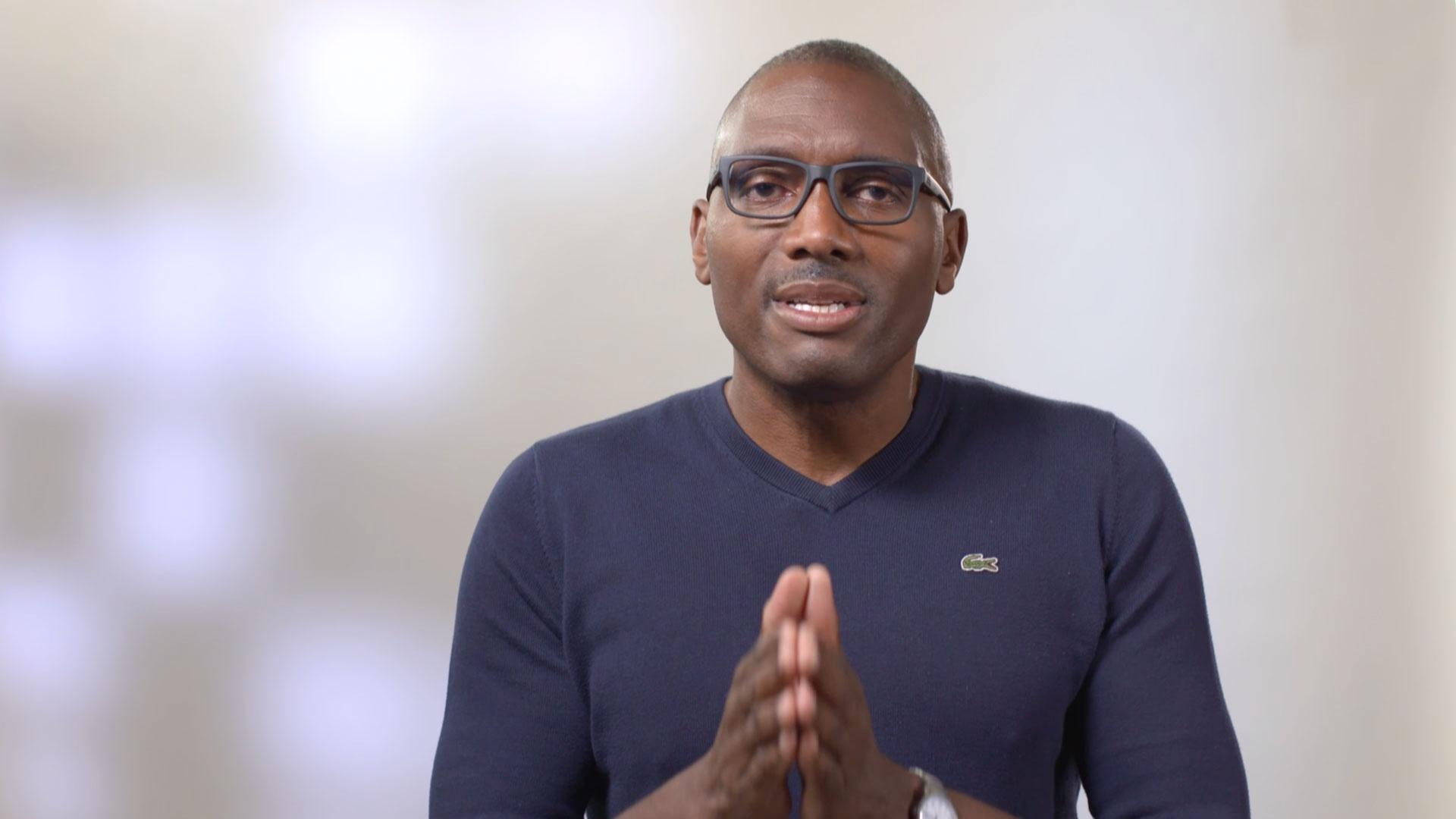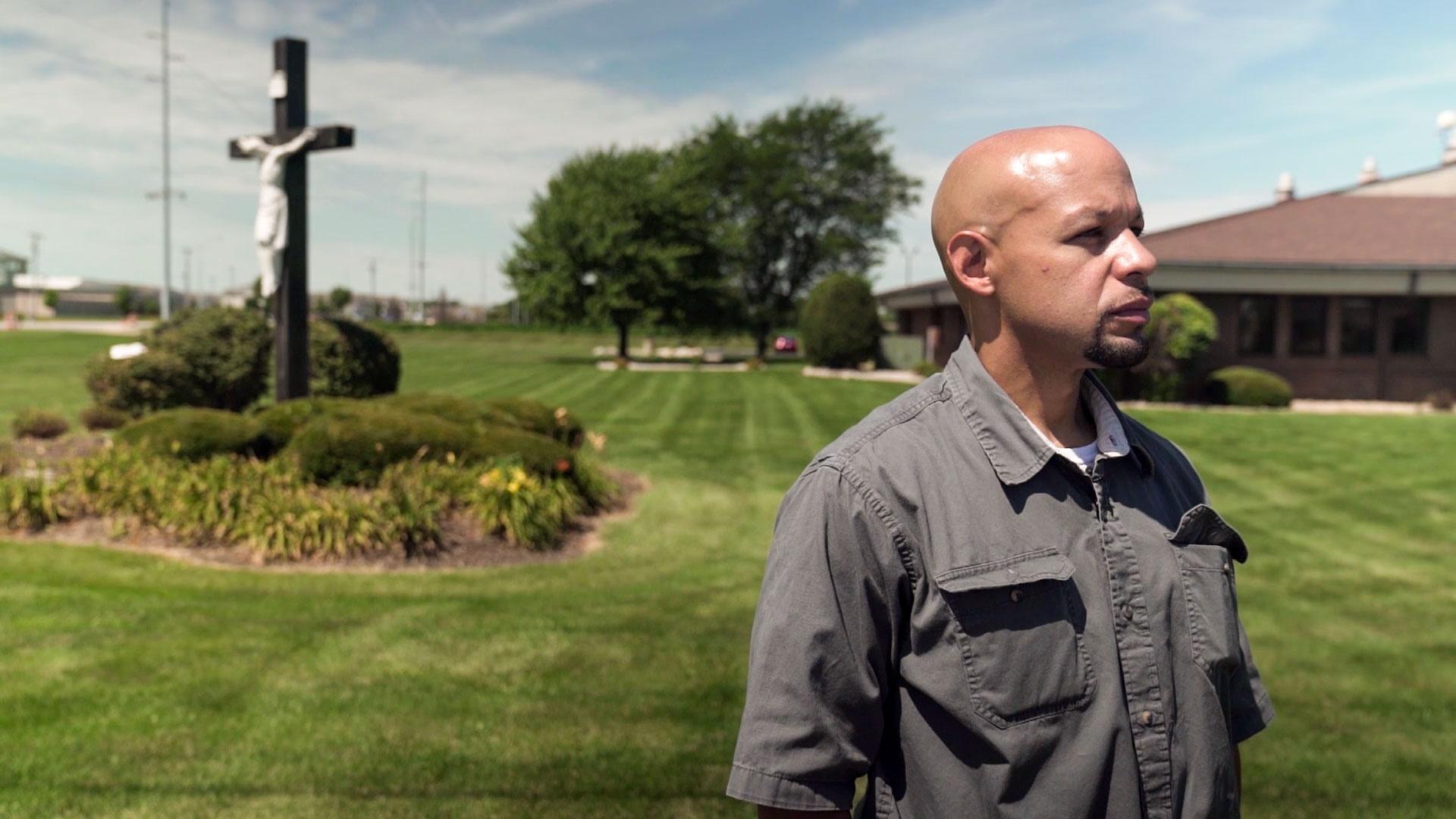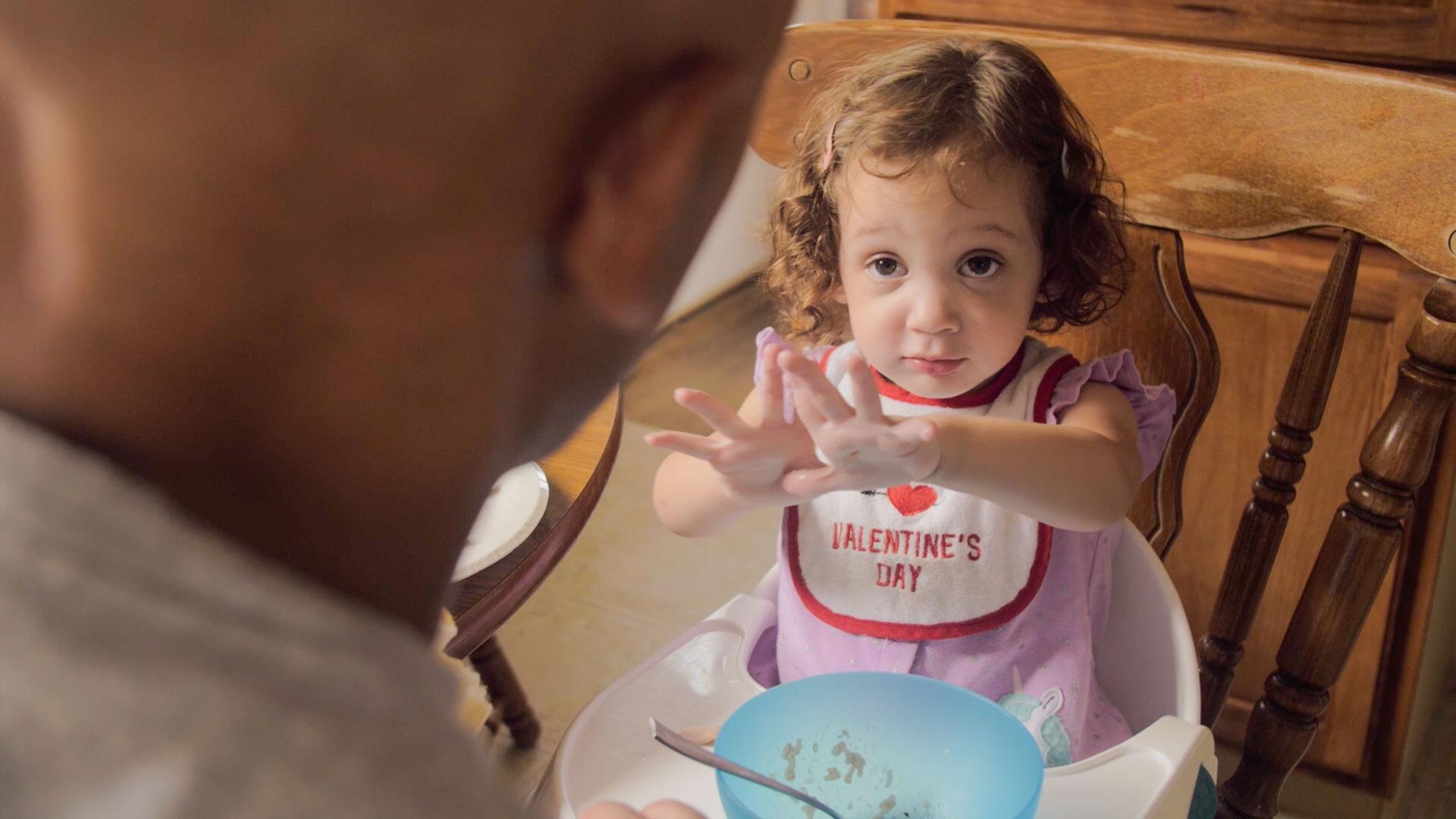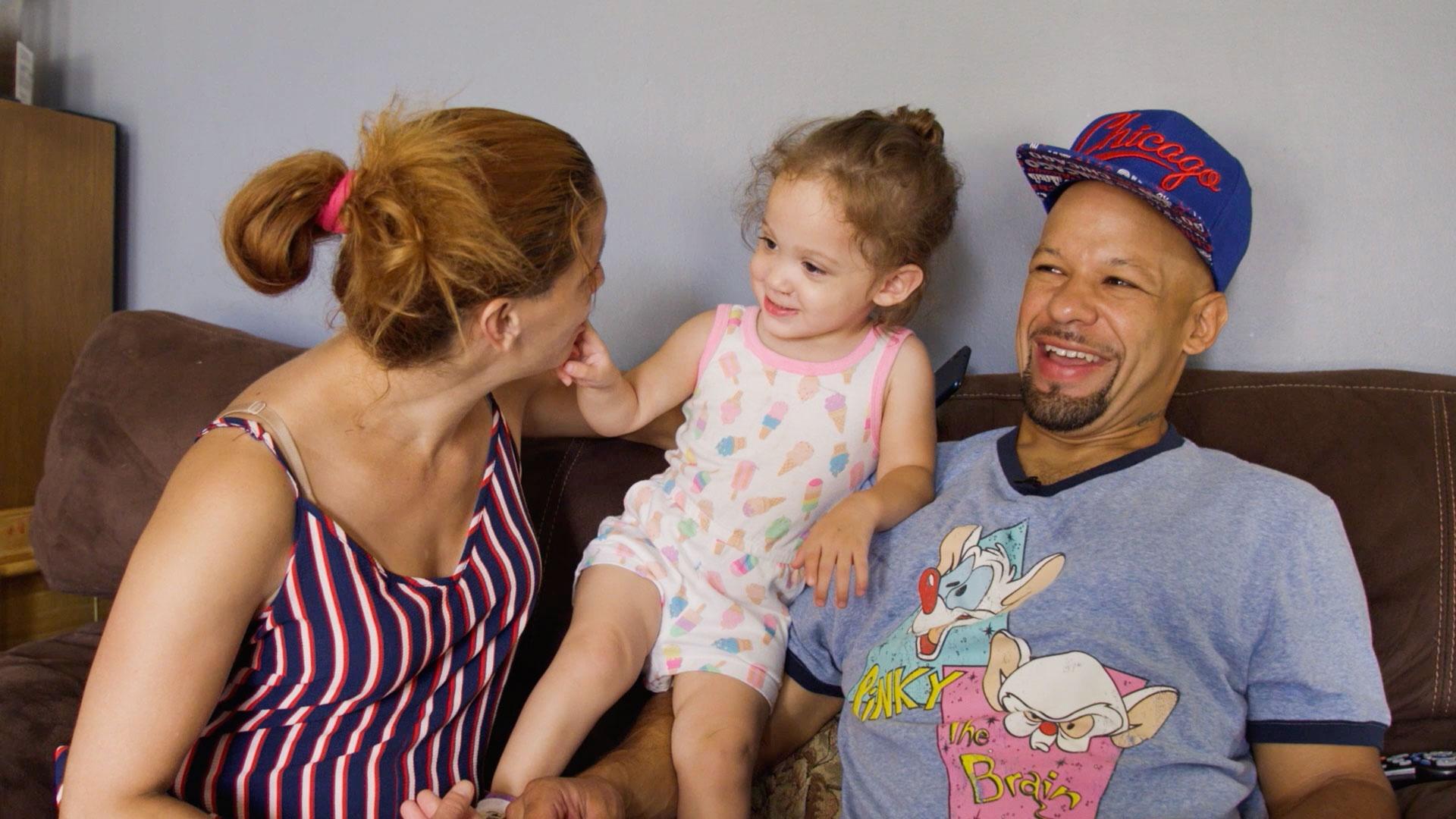Andino Medina | Stories | FIRSTHAND: Living in Poverty
Andino
Company Ownership Can Help Hatch Careers for Those Coming Out of the Workforce Development Pipeline
Workforce development programs can foster new economic opportunities and careers with meaningful incentives.
After a long work week and only three hours of sleep the previous night, Andino Medina can enjoy three days off and spend time with his 2-year-old daughter, Eva. He doesn’t live with her, but he still gets to see her six hours a week. His time with Eva gives him a much-needed chance to unwind after working his new job at a company that disinfects places such as schools, offices, and warehouses – a job that is essential during the pandemic.

Watch: Money with Attitude
Medina said he is only recently learning how to be a better parent, family man, and employee, thanks to a supportive family, a series of workforce development programs, and an employer who gave him a second chance.
The 45-year-old father of two has been in and out of jail for theft and drug-related crimes since he was 17. After his release in November 2019, he was introduced to Cleanslate, a social enterprise transitional program by Cara that cleans and beautifies Chicago neighborhoods. This opportunity, Medina said, helped him find new paths to economic stability.
Cleanslate is a cleaning company that provides outdoor maintenance, landscaping, and snow removal services. Since 2005, it has helped people like Medina get transitional jobs, creating more than 3,000 jobs, and at the same time collecting more than 14,000 tons of trash and more than 4,000 tons of recyclables.
For six months, Medina worked with a team of three to five workers in Humboldt Park, Wicker Park, Edgewater, Little Village, and the Illinois Medical District neighborhoods, picking up garbage, recyclables, and snowplowing in residential and business corridors along.
“It felt great because I helped to clean my city, the city I grew up in and love,” Medina said.
Workforce development programs geared toward serving people who were formerly incarcerated or living in low-income neighborhoods can help them get jobs and out of poverty. But efforts to train and retain talent long-term are the norm for organizations such as Cara, which offers a career entry with a focus on soft skills that enable effective interaction and communication, as well as robust on-the-job-training that rebuilds hope, self-esteem, and opportunity.
Cara’s Five Workplace Competencies – conflict resolution, professionalism, time management, team building, and communication – help managers determine when a worker can be placed in a permanent job. Managers track these daily improvements of each worker by setting high expectations for them and providing leadership trainings and a rigorous work schedule that begins at 6:30 am and finishes at 3:00 pm.
Medina is just one of more than 7,000 people who have received more than 11,500 job placements through Cara since 1991, and he credits the program with helping him be punctual, be a team player, prepare for interviews, and to put others first. It also taught him the value of community and collaboration, which in turn have helped him blossom at his current job and look at it as a career – not just a 9-to-5 job.
Pat Murray, business development director at Cara who connected Medina with his current job at Azenity Labs, said he coached Medina on soft skills while at Cleanslate and noticed his natural leadership strengths.
“If we do our jobs the right way, we are sending out the Michael Jordans and the Serena Williamses to wow the employment partner with,” Murray said. “Andino was Michael Jordan for us at Azenity.”
In the summer, Medina was hired at Azenity, a disinfectant company born out of the pandemic that cleans buildings so they can stay open and ease anxiety about germs (in this case, the coronavirus). Medina was one of the first employees hired when the company debuted in June, and in September, he received an exciting bonus: He now owns part of the company.
Murray said it’s the first company he’s seen with this business model of giving employees equity. But it’s one that can propel someone’s career to the next level.
“To me, it spoke of where you can make real success [and] changes in people’s lives,” he said.
Pete Kadens, the founder of Azenity and longtime financial supporter of Cara, seeks employees with a top work ethic, a responsible attitude, and good time management. He said Medina surpassed all of his employee expectations and called him one of the best workers.
When the pandemic first started, the philanthropist, entrepreneur, and former chairman of the Streetwise board saw a unique business opening. Kadens noticed that janitorial services and cleaning companies were not equipped to deal with the real needs of the pandemic without science and data. He also says he saw an opportunity to make a difference in the lives of his employees.
But to make a real impact for those struggling to find steady employment, Kadens decided to hire exclusively people who were seen by traditional employers as “unhirable” due to their criminal record, drug, or poverty experiences and give them a chance at building generational wealth.
“You can’t give people [in] Englewood a $16-an-hour job and think they are going to invest back into their community,” Kadens said. “The only way to eradicate general poverty in underserved communities is by trying to create generational wealth. Once you give them generational wealth, you give them a possibility to eradicate generations of poverty and also all the issues that come along with it, such as health, welfare, mental, and societal social issues.”
Azenity has 24 employees now, and 16 of them have ownership in the company like Medina, said founder Kadens, who has distributed 30 percent ownership of the company to employees who did not pay for their equity. Most of the employees have come from Cara, he said, and their ability to adapt well to the permanent job is proof that workforce development programs and equity ownership are effective in creating lasting impact and upward mobility.
Kadens, who has employed 5,000 people in the course of his 17-year business career, remembers interviewing Medina for the position and said his desire to have a second chance and him owning his past mistakes was impressive
“I want to look at someone like Andino and say, ‘This could be the next CEO of this company,’” he said. “We have work to do to get there, but we want to look at him in that vein … [K]nowing we have that kind of confidence in him if he works hard and delivers, I think gives him hope as well.”

After his release from jail, Andino Medina received job opportunities and training through Cara Chicago. Medina now owns part of the company he works for – an opportunity he says helped him find new paths to economic stability. He is just one of over 7,000 people who have received over 11,500 job placements through Cara since 1991. Photo by Liam Alexander for WTTW
Andino Medina agrees. He said having a stake in the company has given him more incentive and a change of perspective. For him, the job is more than just punching in and punching out – he feels valued as a critical asset to the startup, and the company has helped him to work on his humility and strengthen his relationships with his family and coworkers.
“Being part owner, I think of it like this: Someone described to me that integrity is doing the right thing even if nobody is looking. I take that mindset and I try to do the right thing,” he said. “The job gives me confidence in myself, which helps me with my family.”
A number of workforce development programs are focusing on other growth sectors in the economy that don’t require a four-year college education, such as construction and specialty trade careers. Overall employment of construction laborers and helpers is projected to grow 5 percent from 2019 to 2029, faster than the average for all occupations. Specialty trade contractors, such as plumbers, electricians, HVAC technicians, and roofers are the largest construction subsector, with employment projected to reach nearly 4.8 million by 2026, per data from the Bureau of Labor Statistics.
Corey Brooks is a social entrepreneur leader who is taking advantage of these opportunities in the labor market. Brooks is the founder of Project H.O.O.D., a nonprofit based in Woodlawn that provides job and leadership training, youth activities, guidance, and resources to the community with an emphasis on helping those formerly incarcerated or in gangs to end the cycle of violence and poverty on the South Side.
Project H.O.O.D’s construction apprenticeship trains young men and women who want to learn a new trade, become an entrepreneur, and launch a construction-related career. With help from CareerBuilder, those in the program learn interview skills, how to build a resume, and soft skills, such as time management and how to communicate effectively. Brooks said the electrical and plumbing apprenticeships are most popular, and the program has a 75 to 80 percent job placement rate. His programs also work with individuals to modify their behavior and fix issues such as drug addiction, gun violence, and housing insecurity.
“We offer counseling to make sure we remove any barriers in their lives so they don’t have them in the way of their careers,” Brooks said.
For Andino Medina, his training at Azenity Labs has changed his outlook on what his future could be. He has gotten a better grip on how to run a company, how to treat others fairly, and how to financially support his family. He said he wants to start his own handyman business in the future, and Azenity is giving him the necessary building blocks.
His job has also given him the time and space to focus on his family. He recently finished a mandatory online parenting class through the Department of Child and Family Services.
He has a few more steps to show a judge that he’s ready to have his daughter, Eva, live with him full-time, but he hopes to start a family with her and her mother, who has also gotten clean and is trying to be a better parent.
“Eva was a light given to me; she gave my life meaning again,” Medina said. “My daughter is my boss – that’s who I work for and that’s who I live for.”




